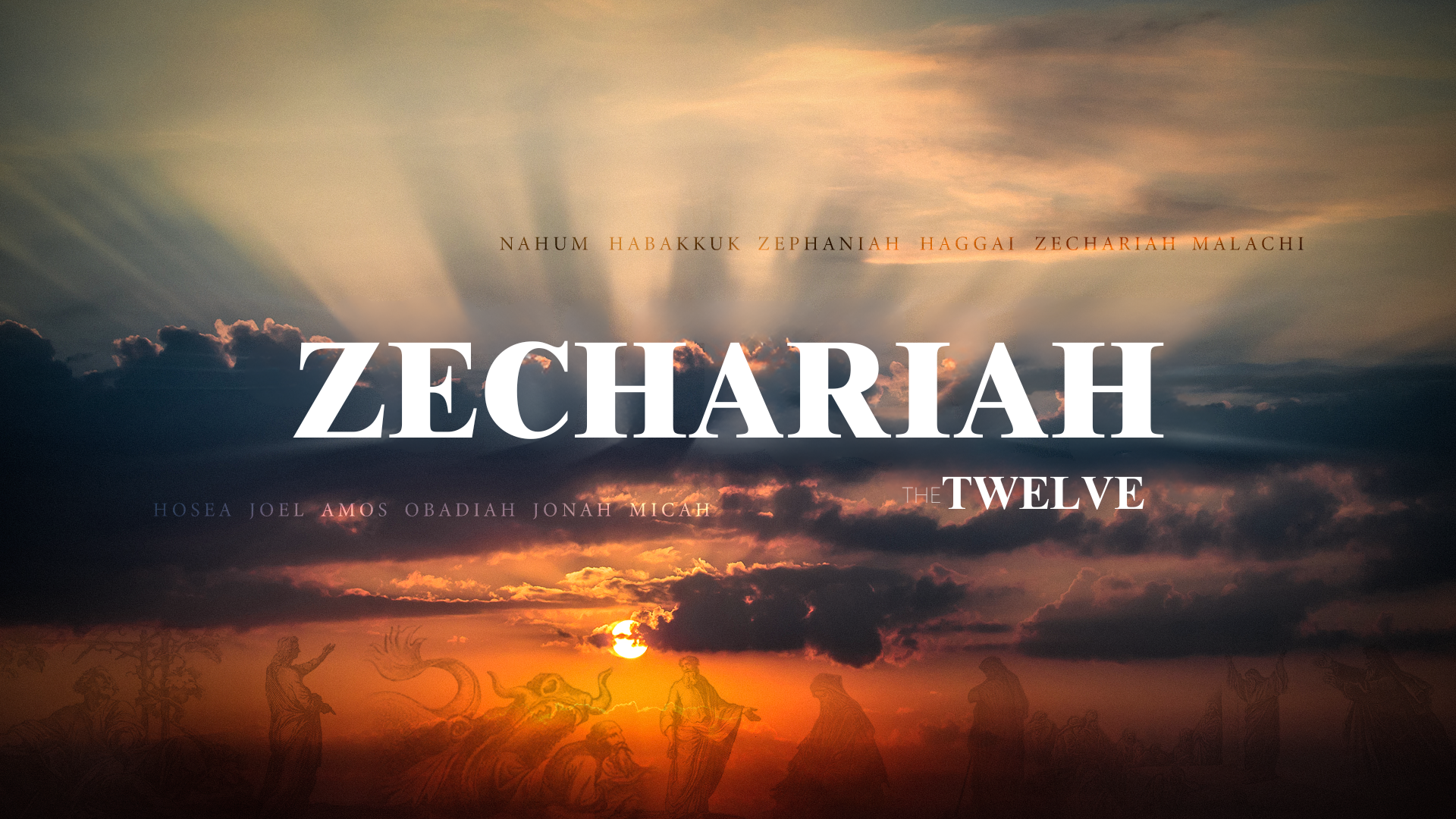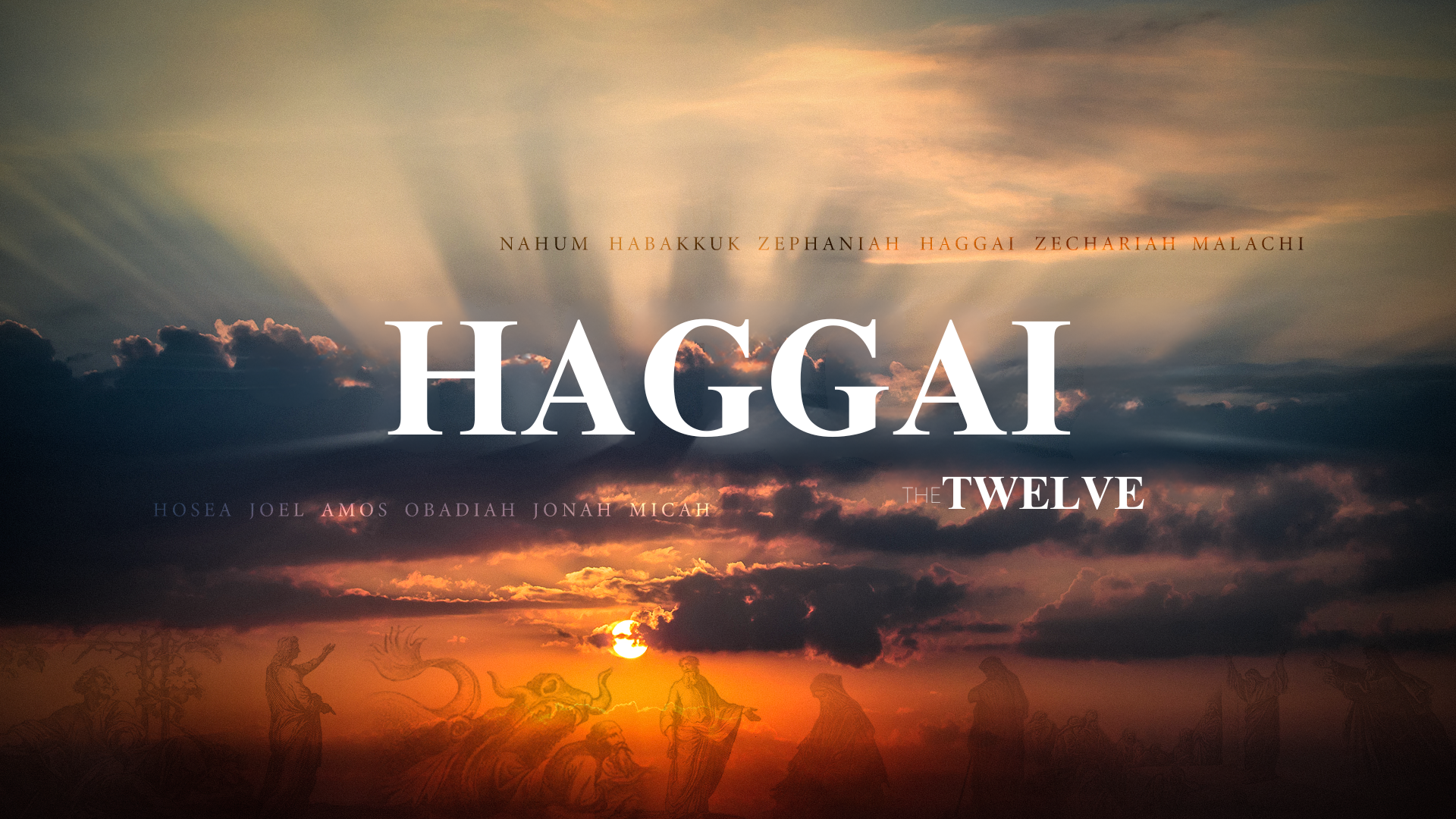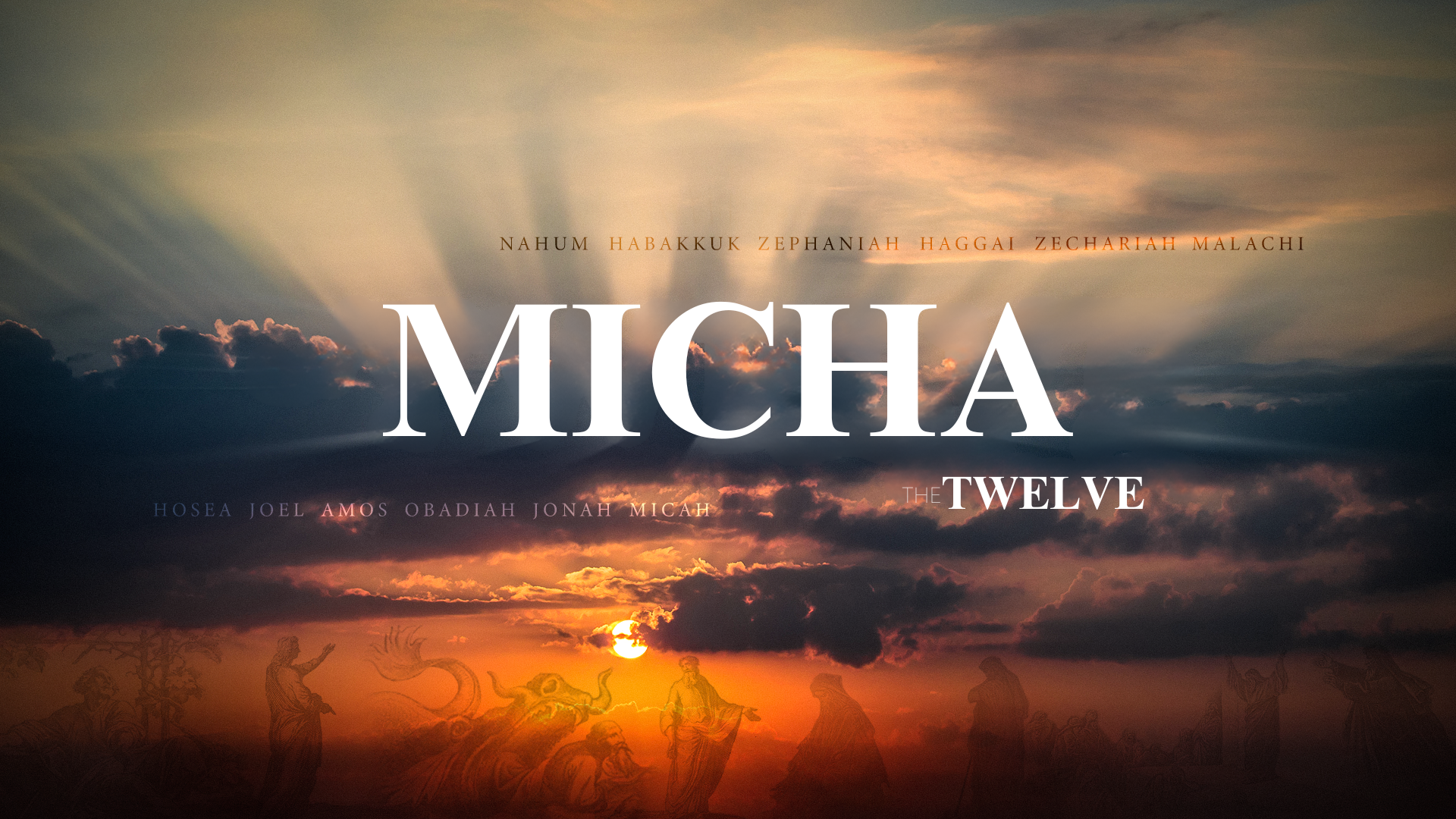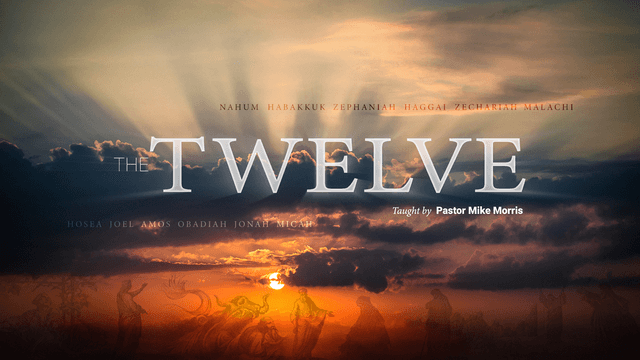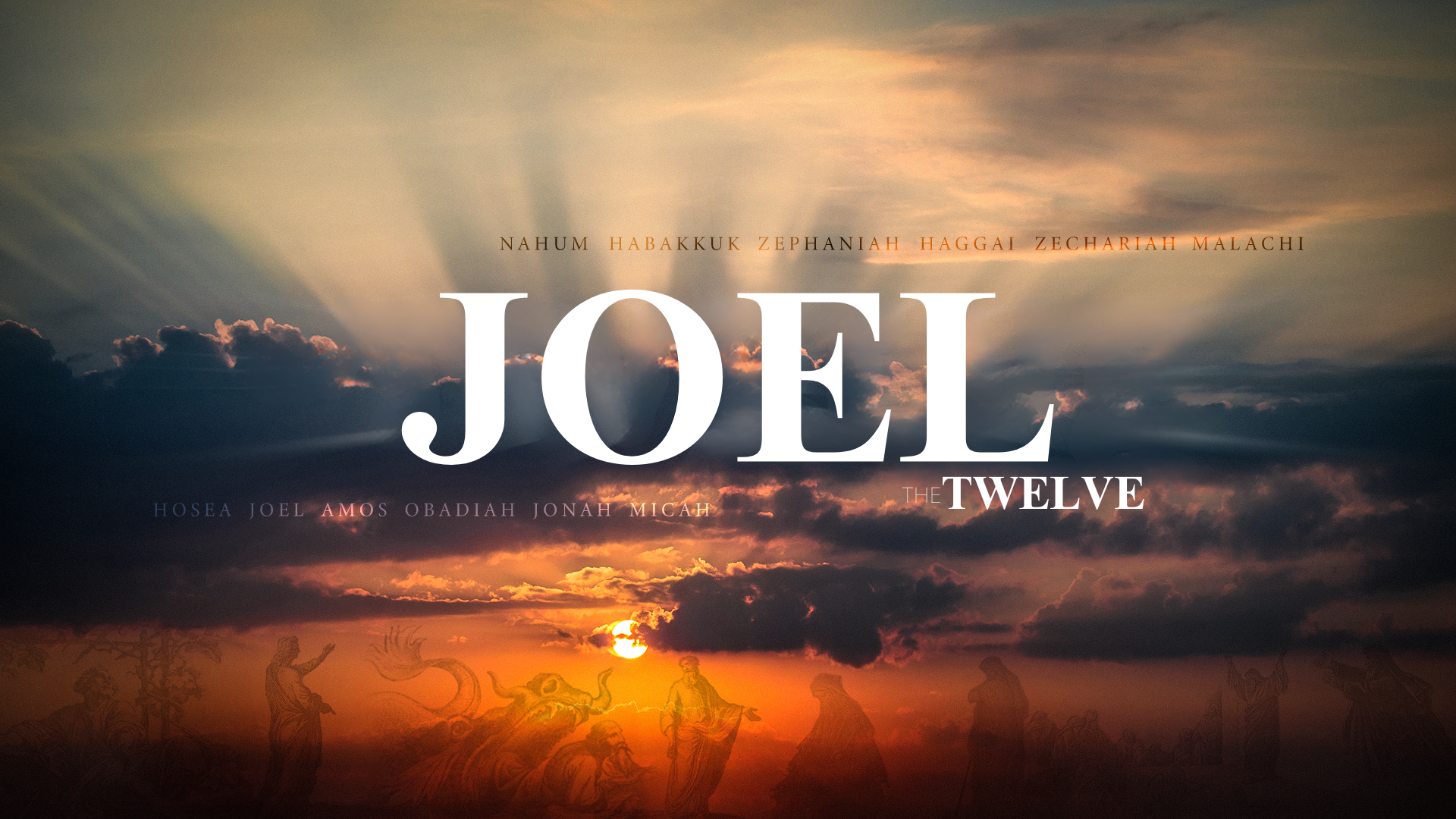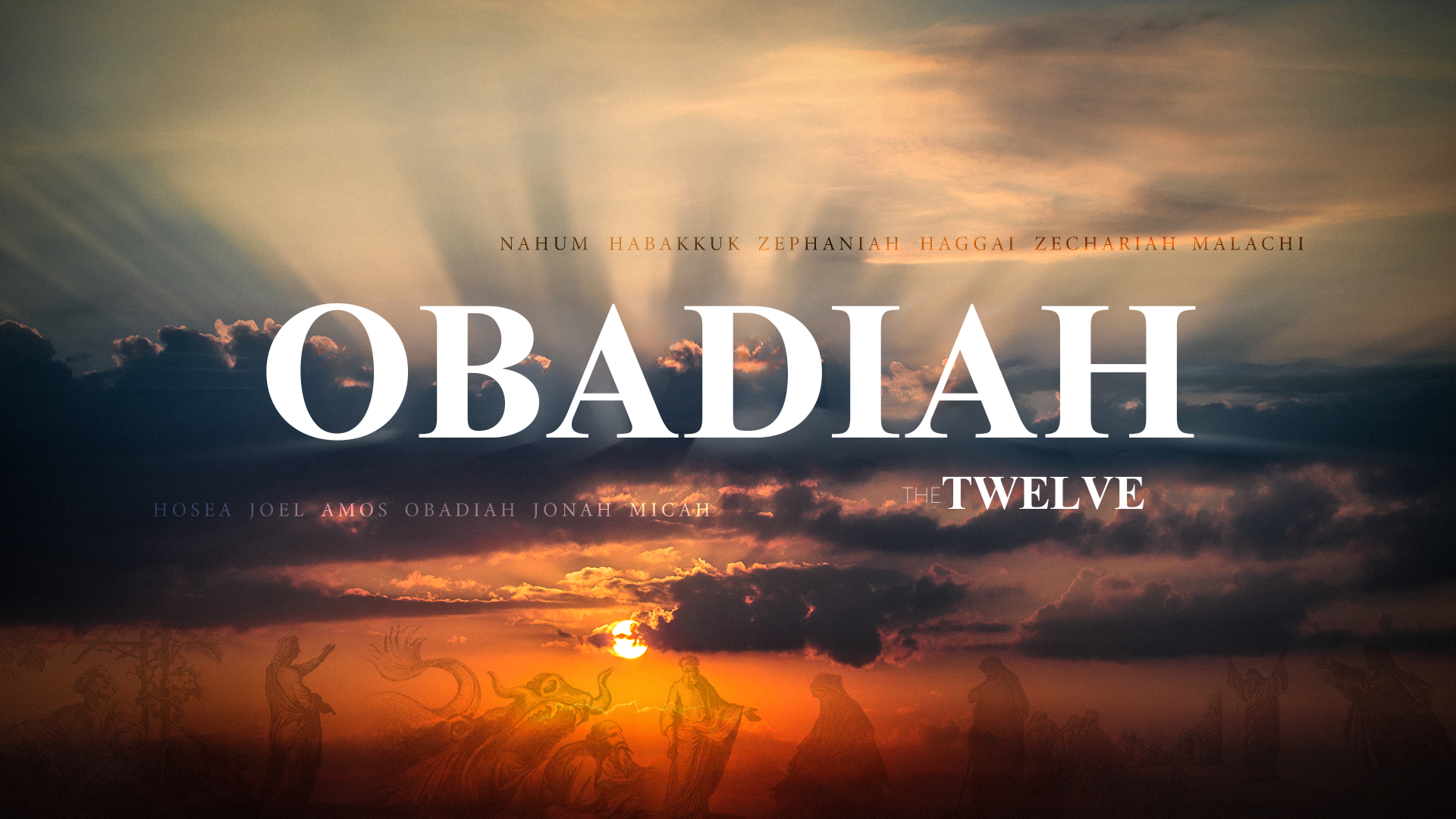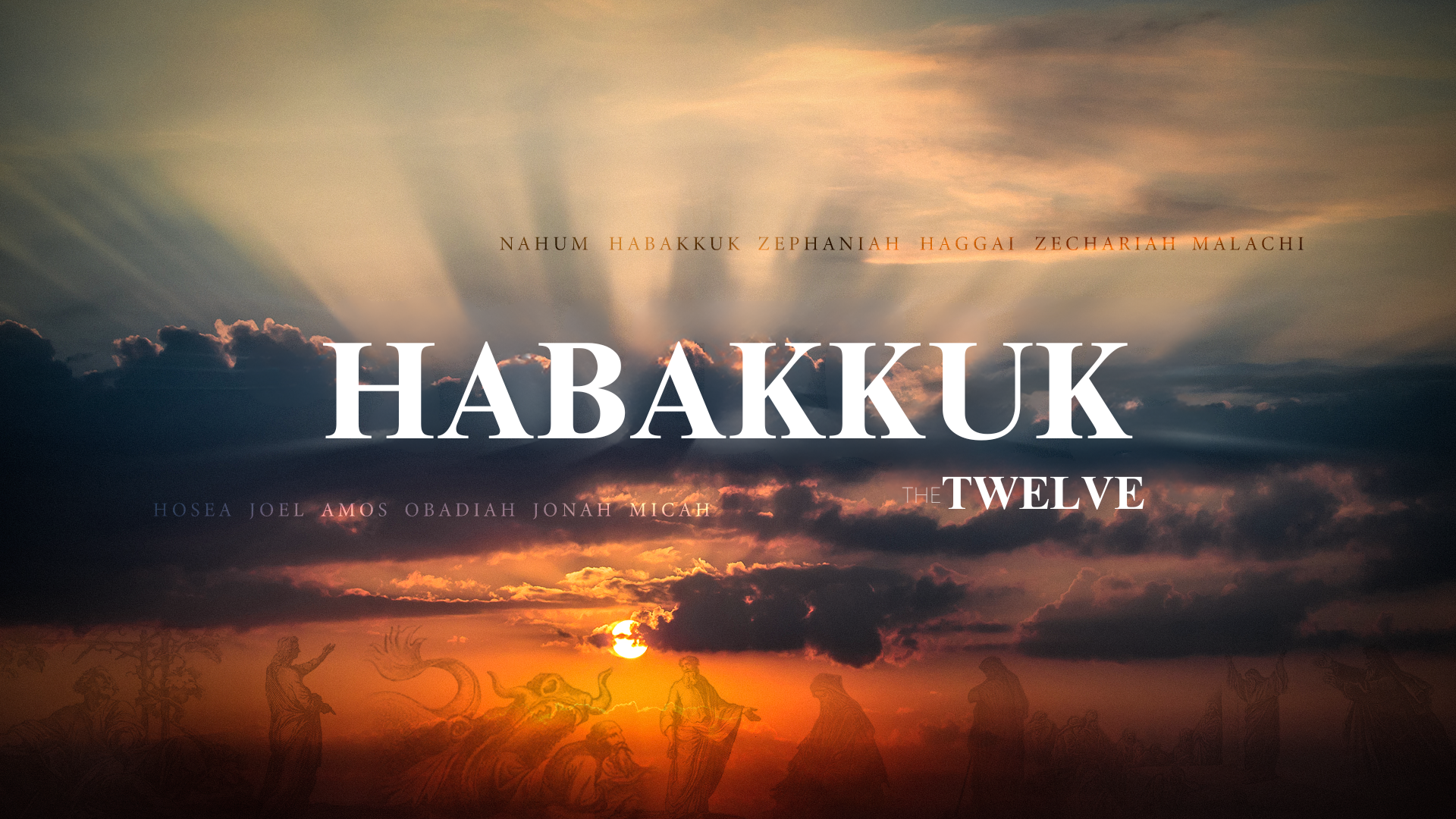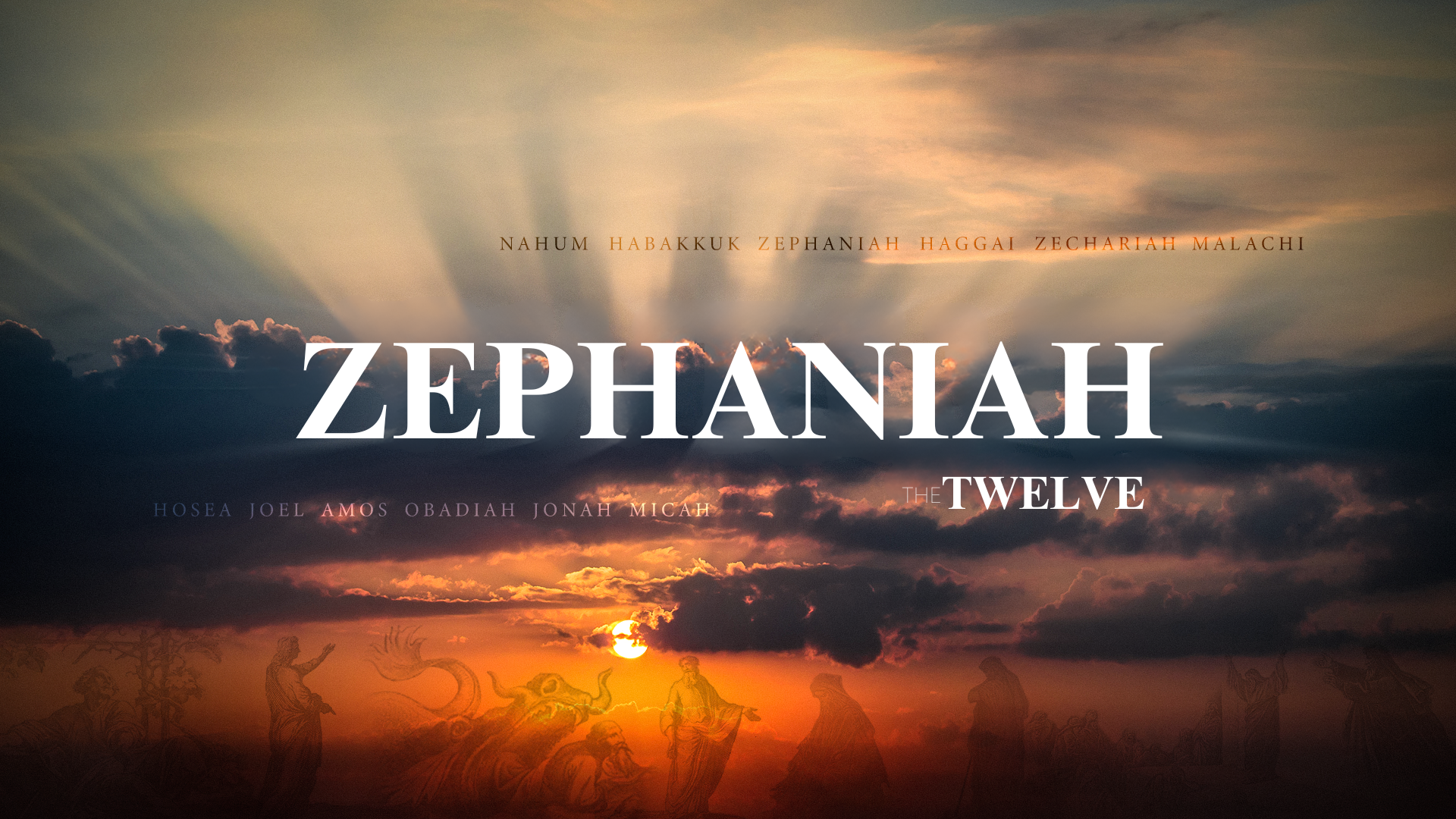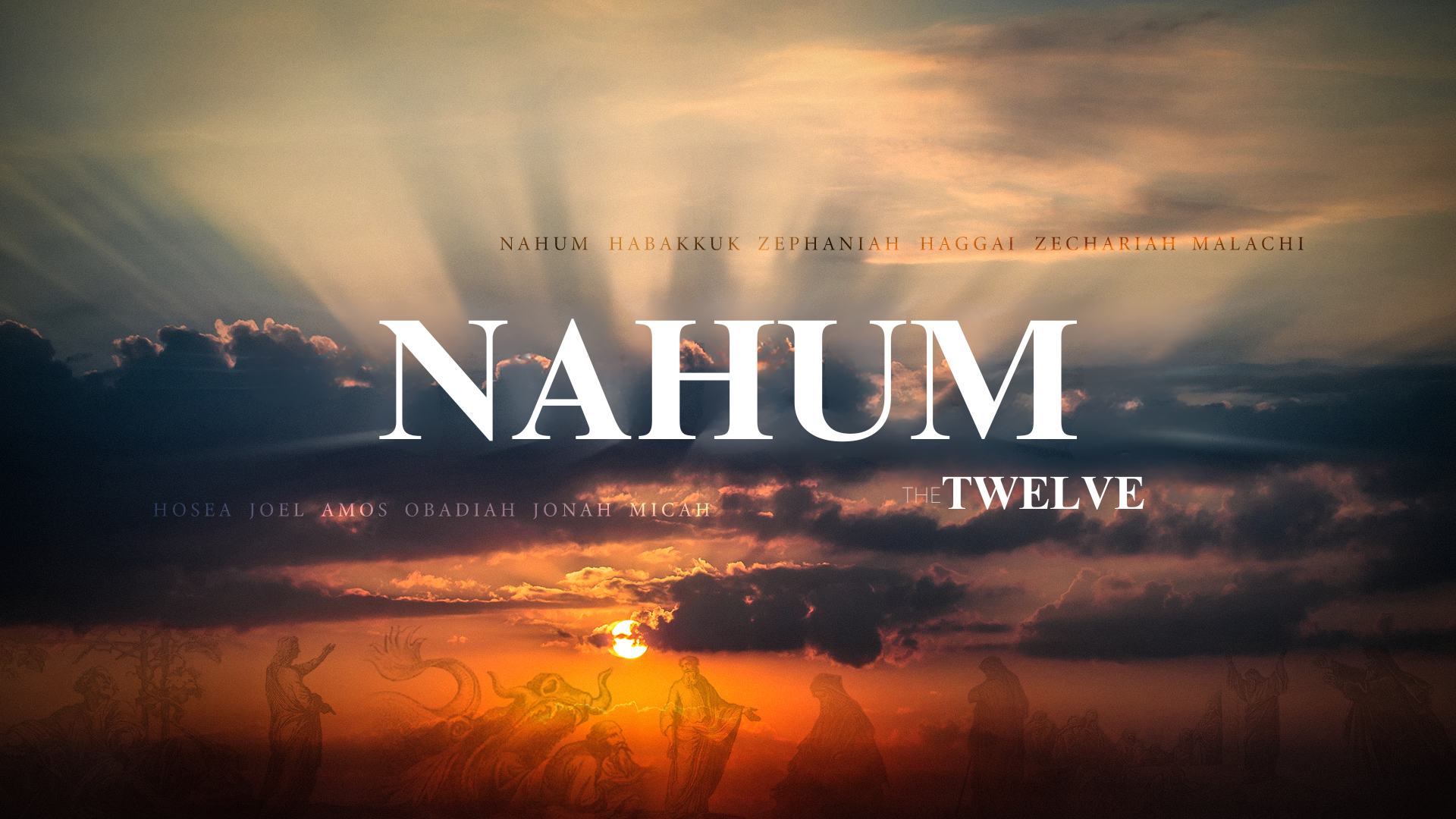MANUSCRIPT
Tonight, we continue our study of the prophecy of Zechariah in chapter 4.
As we begin, let’s review.
Verses 1.1-6 affirms the importance of repentance to our relationship with God.it is the key to the visions that follow from 1.7 through 6.8.
The first vision reveals the Angel of the Lord, the Messiah, interceding for His people, asking Yahweh for mercy, and Yahweh pledges to remember and bless them.
In the second vision, God used the Gentile nations to scatter Israel, but He also promised to judge those nations.
The third vision, the man with the measuring line, reminds us that God will yet glorify Jerusalem, and that the Jews remaining in Babylon must flee to Judah.
The fourth vision, the cleansing of the High Priest, depicted the restoration of Israel to its divine national purpose and assured the people of the eventual salvation of the nation.
The first three visions are related to the physical restoration of the nation, and they were marvelously encouraging. But in visions four and five, the perspective changes to the spiritual restoration of the nation.
The fourth vision gave Israel hope that they would ultimately fulfill God’s original purpose for them to be a kingdom of priests and a holy nation. Tonight, we look at the fifth vision.
Turn to Zechariah 4 and let’s examine the text.
“Not by might, nor by power, but by My Spirit”
In this fifth vision, the interpreter angel returns to help Zechariah understand what he sees, which is a beautiful yet complex vision.
1 And the angel who talked with me came again and woke me, like a man who is awakened out of his sleep. 2 And he said to me, “What do you see?” I said, “I see, and behold, a lampstand all of gold, with a bowl on the top of it, and seven lamps on it, with seven lips on each of the lamps that are on the top of it. 3 And there are two olive trees by it, one on the right of the bowl and the other on its left.” 4 And I said to the angel who talked with me, “What are these, my lord?” 5 Then the angel who talked with me answered and said to me, “Do you not know what these are?” I said, “No, my lord.” 6 Then he said to me, “This is the word of the Lord to Zerubbabel: Not by might, nor by power, but by my Spirit, says the Lord of hosts. 7 Who are you, O great mountain? Before Zerubbabel you shall become a plain. And he shall bring forward the top stone amid shouts of ‘Grace, grace to it!’”
By this point, Zechariah seems to be getting very tired. This time interpreter angel had to wake him up. The angel begins by asking Zechariah a question.”What do you see?” What he sees is an amazing object. It’s a lampstand made entirely of gold, with seven lamps incorporated into the intricate design, and including a vision of two olive trees.
As with many of the symbols in this prophecy, this one appears earlier, in Exodus 25.31-40, but in a simpler form, called in Hebrew the ‘menorah’. That lampstand was one of the objects created for the worship of Yahweh. Exodus 25.31-33 says 31 “You shall make a lampstand of pure gold. The lampstand shall be made of hammered work: its base, its stem, its cups, its calyxes, and its flowers shall be of one piece with it. 32 And there shall be six branches going out of its sides, three branches of the lampstand out of one side of it and three branches of the lampstand out of the other side of it; 33 three cups made like almond blossoms, each with calyx and flower, on one branch, and three cups made like almond blossoms, each with calyx and flower, on the other branch—so for the six branches going out of the lampstand.
According to Exodus 26, the ancient menorah was placed just outside the Holy of Holies, in the Holy Place, on the south side opposite the Table of Showbread, which was on the north. this is a picture of a bas-relief sculpture of the menorah that still exists on the Arch of Titus on the Via Sacra, the main processional street, in Rome. This sculpture is one element of many on the Arch, memorializing the destruction of Jerusalem in 70 AD led by General, later Emperor, Titus. The menorah lit the Holy Place, which otherwise would be quite dark. This light allowed the priests to be about their daily tasks in that space, which included maintaining the lamp itself, filling it with fine olive oil, and trimming the wicks.
The menorah of the tabernacle required the production of a specific olive oil for fuel, and the work of the priests to maintain the lamp’s light. It could not operate on its own, but required considerable tending (see Exodus 27).
As a priest, Zechariah would have known the menorah very well and would have immediately recognized that the lampstand of this vision was very different.
First, there is a bowl on the top of the lampstand. This allowed oil to automatically flow from an outside source into the bowl, then into each of the seven lamps of the lampstand. The Hebrew text of the passage is difficult to determine regarding exact details, but it’s pretty clear there are seven lamps fed by oil from a source other than the priests.
Second, instead of seeing the lampstand in its place in the tabernacle or Temple, Zechariah sees the lampstand out in the open, and flanked on the right and the left by olive trees.
Third, the oil came straight from the olive trees. It wasn’t prepared or provided by the priests, and for that reason, it was called “new oil,” meaning pure, fresh oil. Later, it will be called “golden oil,” meaning of the highest quality, and it flowed through a pair of pipes into the bowl.
Zechariah knows there is more to learn from this vision, so he turns again to the interpreter angel. 4 And I said to the angel who talked with me, “What are these, my lord?” 5 Then the angel who talked with me answered and said to me, “Do you not know what these are?” I said, “No, my lord.” 6 Then he said to me, “This is the word of the Lord to Zerubbabel: Not by might, nor by power, but by my Spirit, says the Lord of hosts.
The angel responds with a bit of a chastening comment, “do you not know?” but then gives to the prophet the word of the Lord, the overarching message of the vision of the golden lampstand, and it’s directed to the Judean governor, Zerubbabel: this vision assures him that all that was to come, the rebuilding of the Temple and the city of Jerusalem, would be accomplished not by human effort but by God’s Spirit. One important note here.Neither the interpreter angel nor anyone else addresses the exact meaning of the individual elements of the vision, only the overall message. My conclusion is that that is the intended focus.
The Hebrew words for “might” and “power” help us understand this message.” Might” is a common word most frequently translated as “armies.”. it represents the might of many people together. The word for “power,” however, is most frequently translated as “strength,” as of one person. So the work that would be done in the rebuilding is specifically NOT the product of the combined efforts of the Judean people, and also NOT the work of Zerubbabel himself. Instead, the One Who will accomplish this miraculous work is Yahweh, through His Spirit.
We need to understand how this vision leads us to that message about the Holy Spirit. Let’s start with Israel. The menorah has, since its creation, been understood as a national religious symbol. The nation was to be the light of God to the world, but that had never been fulfilled up to the time of Zechariah, but it one day will be. Isaiah 62.1-2a. For Zion's sake I will not keep silent, and for Jerusalem's sake I will not be quiet, until her righteousness goes forth as brightness, and her salvation as a burning torch. Isaiah 60.3 3 And nations shall come to your light, and kings to the brightness of your rising.
And that future fulfillment depended on their spiritual restoration brought about by the sovereign forgiveness of Messiah, as we saw in the fourth vision, and their empowerment by God’s Spirit, embodied in the Temple (see v 7-9), as we see in this fifth vision.
Israel will be a light to the world, and nations and kings will come to them. What will make this possible is the Holy Spirit, symbolized by the pure oil. The physical reconstruction of the Temple led by Zerubbabel and the spiritual renewal of the people led by Joshua will both be accomplished not by any human agency, but solely by the Holy Spirit. Only He can call people to holiness, anoint leaders, and empower the people to do God’s will. But, as one commentator has well said, that truth about Israel does not exhaust the symbol.
In a similar way, the church is to be God’s light to the world, fueled by the same Holy Spirit. In Matthew 5.14-16 Jesus says of His disciples, 14 “You are the light of the world. A city set on a hill cannot be hidden. 15 Nor do people light a lamp and put it under a basket, but on a stand, and it gives light to all in the house. 16 In the same way, let your light shine before others, so that they may see your good works and give glory to your Father who is in heaven.
Of course, the Holy Spirit is the power in the life of the church, as well. Much could be said about this, but I’ll offer just this summary of the works of the Spirit in Paul and Barnabas. Acts 13.48-49, 52. 48 And when the Gentiles heard this, they began rejoicing and glorifying the word of the Lord, and as many as were appointed to eternal life believed. 49 And the word of the Lord was spreading throughout the whole region. 52 And the disciples were filled with joy and with the Holy Spirit.
But humanity can never eclipse the brightness and glory of the Son of God Himself. Jesus is the greatest Light, as He says in John 8.12.“I am the light of the world. Whoever follows me will not walk in darkness, but will have the light of life.” and we know from Scripture that the power of the Holy Spirit was the power of Jesus in His earthly ministry. From His baptism to His resurrection, the Spirit was the power in the ministry of Jesus. Luke 4.17-19. 17 And the scroll of the prophet Isaiah was given to him. He unrolled the scroll and found the place where it was written, 18 “The Spirit of the Lord is upon me, because he has anointed me to proclaim good news to the poor. He has sent me to proclaim liberty to the captives and recovering of sight to the blind, to set at liberty those who are oppressed, 19 to proclaim the year of the Lord's favor.”
And again, the key to the vision is the lampstand powered by the oil. God’s light on display to the world is powered by God Himself in the Person of the Holy Spirit. That’s why the key to this vision is verse 6. Not by might, nor by power, but by my Spirit, says the Lord of hosts.
And this message gives Zerubbabel great courage and confidence. Now, the obstacles in the way of the work, which seemed before like great mountains, political opposition, lack of resources, and apathetic people. All of that will become a flat plain because of the authority and energy of the Spirit. The last phrase of this passage, And he shall bring forward the top stone amid shouts of ‘Grace, grace to it!’” is a transition to the next portion of the vision. Zerubbabel shall set the top stone of the new Temple, which we often call the keystone. In his role as the governor, he will take the leading part in the corporate work of the people in reconstructing Jerusalem. Let’s go on to verse 8 and following.
The Day of Small Things
We recall from Haggai that some of the exiles who had returned from Babylon didn’t expect that the Temple and Jerusalem they hoped to build would ever amount to much. They believed Zerubbabel’s Temple, as it came to be known, would never be what Solomon’s Temple had been. Many, apparently, did not believe the word of the Lord in Haggai 2.9. 9 The latter glory of this house shall be greater than the former, says the Lord of hosts.
God assures the people of His steadfast commitment in this passage.
8 Then the word of the Lord came to me, saying, 9 “The hands of Zerubbabel have laid the foundation of this house; his hands shall also complete it. Then you will know that the Lord of hosts has sent Me to you. 10 For whoever has despised the day of small things shall rejoice, and shall see the plumb line in the hand of Zerubbabel. “These seven are the eyes of the Lord, which range through the whole earth.”
This might have seemed to the Judeans to be a “day of small things,” but God Himself had pledged to complete the work of rebuilding His Temple and the city of Jerusalem. Haggai’s prophecies and Zechariah’s earlier visions testify to that. And He specifically pledged to use Zerubbabel to accomplish the work. His leadership was critical to the laying of the foundation, to the construction itself, as evidenced by the reference to the plumb line being in his hand, and his hands were to complete the work, even to the final step of putting the top stone in place when the Temple was complete. And God did exactly what He said, as the Temple was completed about four years later, recorded in Ezra 6.14-15. 14 And the elders of the Jews built and prospered through the prophesying of Haggai the prophet and Zechariah the son of Iddo. They finished their building by decree of the God of Israel and by decree of Cyrus and Darius and Artaxerxes king of Persia; 15 and this house was finished on the third day of the month of Adar, in the sixth year of the reign of Darius the king. And all of that, God’s initiation of the effort and His completion of it, through the human leadership of the governor, would attest to the faithfulness of God and His word. Yahweh was rebuilding His people, both physically and spiritually, and He would complete what He had begun in them.
The Two Olive Trees
Now we approach the end of the vision, and Zechariah asks for insight again, this time about the two olive trees.
11 Then I said to him, “What are these two olive trees on the right and the left of the lampstand?” 12 And a second time I answered and said to him, “What are these two branches of the olive trees, which are beside the two golden pipes from which the golden oil is poured out?” 13 He said to me, “Do you not know what these are?” I said, “No, my lord.” 14 Then he said, “These are the two anointed ones who stand by the Lord of the whole earth.”
This is a very curious conversation. The prophet asks for understanding, and apparently, the interpreter angel doesn’t reply. So Zechariah observes the vision and reflects on it further, then asks a more specific question, which gives us more detail than we didn’t have before. “What are these two branches of the olive trees, which are beside the two golden pipes from which the golden oil is poured out?” The two olive trees to the right and the left of the golden lampstand each have one specific branch, nearest the lampstand, that is exceptionally full of olives. Then two golden pipes carry the “golden oil” – extremely pure new olive oil – to the bowl at the top of the lampstand, where it makes its way to the lamps.
The angel answers Zechariah’s question by saying, “These are the two anointed ones who stand by the Lord of the whole earth.” There are many different thoughts on the identity of these anointed ones. The one interpretation that is the most consistent with this text and in concert with the rest of the book is this: that the “two anointed ones” are Joshua the High Priest and Zerubbabel, the governor. Here’s why.
They are the primary human subjects of the two central visions of this portion of the book and are key to the physical and spiritual restoration of Israel, the subject of all eight visions. These visions are intended to encourage and strengthen the people and their leaders, and no one needed encouragement like these two.
Two leadership roles were anointed with oil: the high priest and the king. Though Zerubbabel was not a king, for Israel had no king in those days, he was the political leader, and as we’ve seen, was the man responsible for leading the people to rebuild the Temple and Jerusalem.also, Zerubbabel is of the Davidic line and an ancestor of Jesus Christ, according to the genealogies in Matthew and Luke.
In those days, Joshua and Zerubbabel were the ones standing before the Lord of the whole earth, here in the visions of Zechariah and in the life of Israel as they struggled and worked to reestablish the worship and corporate life of the people.
Together, they are also a picture of the Messiah Himself. We see a preview in Zechariah 6 of the merging of these two offices, which in ancient Israel were strictly separated, but which prophecy tells us will one day be united in the ultimate Leader of God’s people, the Priest-King, the Messiah Jesus Christ, the anointed One of God. Richard Phillips captures the thought well.”This completes the vision. The priesthood and the kingship, as ordained by God, mediated God’s Spirit just as the oil flowed through the channels into the lampstand. The oil is the Spirit, who fuels the flames, makes bright the light, and empowers every spiritual work.”
Application
As we close, there is so much here to learn and encourage us today. Let’s look at the lessons of Zechariah 4.
The most important one is obvious. Jesus is the Light of God. By comparison, all else is darkness. The light of Israel in the OT and the church in the NT pale into insignificance compared to the glory of Jesus. John 1.4-5, 9 4 In him was life, and the life was the light of men. 5 The light shines in the darkness, and the darkness has not overcome it. 9 The true light, which gives light to everyone, was coming into the world.
How do we respond when times are difficult, when opposition to the gospel rises from outside and inside the church, when suffering increases, when temptation assails us? How do we continue to trust, obey, and serve our Savior-King, Jesus Christ? By the power of the Holy Spirit. Romans 8.5-6. 5 For those who live according to the flesh set their minds on the things of the flesh, but those who live according to the Spirit set their minds on the things of the Spirit. 6 For to set the mind on the flesh is death, but to set the mind on the Spirit is life and peace.
The work of God is never accomplished by the works of fleshly man. It’s not by might or by power, but by His Spirit. I Corinthians 2.1-5 says And I, when I came to you, brothers, did not come proclaiming to you the testimony of God with lofty speech or wisdom. 2 For I decided to know nothing among you except Jesus Christ and him crucified. 3 And I was with you in weakness and in fear and much trembling, 4 and my speech and my message were not in plausible words of wisdom, but in demonstration of the Spirit and of power, 5 so that your faith might not rest in the wisdom of men but in the power of God.
Whether it’s in the Old Testament or the New Testament, God’s people of all ages know to trust in the faithfulness and the promises of our Father. What He begins, He finishes, and what He says, He does. That’s why those who are His trust Him in every circumstance. It doesn’t matter if the work before us is small or great, or if we believe it is possible or not, our God never fails to deliver on His promises. Proverbs 3.5 is good counsel: Trust in the Lord with all your heart. Even in the “day of small things,” never doubt the sovereign power and abiding love of our God. We see the same truth in Philippians 1.6.6 And I am sure of this, that he who began a good work in you will bring it to completion at the day of Jesus Christ.

Taught by Mike Morris
Associate Pastor of Verse By Verse Fellowship
The Twelve Series
